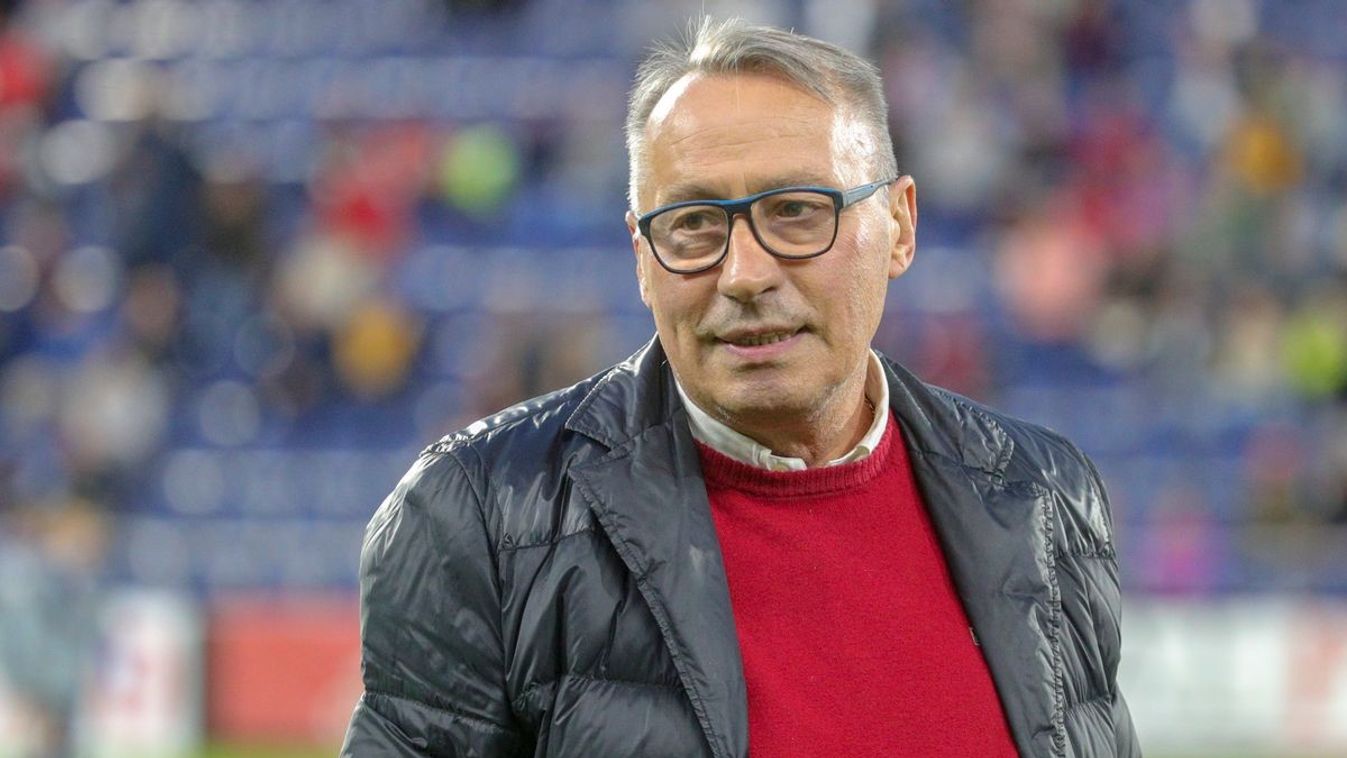Nyilasi, Törőcsik, Ebedli, Pásztor, Csapó, Dárdai among the rural ones – in the seventies and eighties it was not easy to stand out if someone was a technical footballer. Sándor Müller succeeded. Maybe we won’t offend the fans of Vasas with that, the thin-skinned midfielder received the greatest praise from the Fradistas, who recognized him and only insulted him, even though in 1974 he spoiled the celebration at the opening of the stadium on Üllői Street, Vasas with his goal won 1-0.
Sándor Müller (opposite) during the 1981 World Cup qualifier against Romania. Photo: MTI/László Petrovits
Looking back from the present, it is almost incomprehensible why, at the peak of his career, he did not participate in the 1978 World Championship, which was managed by Lajos Baróti. A year earlier, Vasas had won its sixth, and to date, last championship gold medal – ahead of Újpest, then still Dózsa, and Ferencváros, which could hardly have been achieved without Müller. Maybe it was his fault that he was a part of the lost match against the Bulgarians for the 1976 Olympic appearance.
He was one of the first to be signed abroad in 1980, and at the age of 30 he enjoyed the second boom of his career in Royal Antwerp in Belgium and then in Alicante in Spain. His good friend and former teammate Kálmán Mészöly invited him back to the national team, which he thanked by saying that he played a significant role in the national team qualified for the 1982 World Cup. Careers crossed with Mésöll at several points. Like his famous predecessor, he is also the III. He started playing football in a district, from where his path led to Vasas, although he ended up in Angyalföld because he was advised against it at MTK…
Sándor Müller had been struggling with diabetes and arteriosclerosis for years, his heart was also unruly, but he still preserved his bohemian nature and good mood until recently. He kept in touch with former teammates, on whose behalf This is how László Kiss said goodbye to him: “He was a technical footballer who still played football. There are fewer and fewer of his kind on the tracks these days. Unfortunately, life is cruel, more and more of our fellow players are being taken by death, I am sure that they play the same way up there as they did down here at the time…”
Sándor Müller died at the age of seventy-five. He is survived by his wife, son and two daughters. And of course thousands of football fans.


